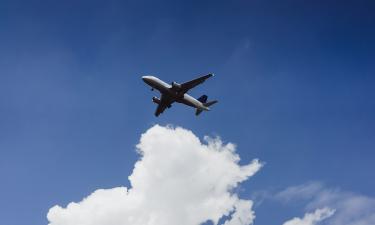Putin to Scholz: Ukraine agreements should take account of Russia's interests first
Russian President Vladimir Putin, in a conversation with German Chancellor Olaf Scholz, said that agreements on Ukraine should take Russia's interests into account.
"Possible agreements should take into account the interests of the Russian Federation in the sphere of security. They should proceed from new territorial realities, and most importantly, they should eliminate the root causes of the conflict," the Russian leader said.
The Russian president also noted that the conflict in Ukraine started because of the aggressive policy of the North Atlantic Alliance against Russia.
NATO's actions are aimed at creating an "anti-Russian platform" on the territory of Ukraine, Putin noted.
Scholz asks Putin to withdraw troops from Ukraine
German Chancellor Olaf Scholz, when speaking to Russian President Vladimir Putin on the phone on November 15, asked the Russian leader to withdraw troops from Ukraine.
According to Reuters, the German Chancellor called on the Russian leader to demonstrate its readiness to enter into negotiations with Ukraine in order to achieve a fair and lasting peace.
Before calling Putin, Scholz had a conversation with Ukrainian President Volodymyr Zelensky.
It was also reported that Putin and Scholz agreed to maintain bilateral contacts in the future.
Putin: Moscow ready for mutually beneficial cooperation
Olaf Scholz and Vladimir Putin also discussed bilateral relations. Putin pointed out their unprecedented degradation in all areas that emerged as a result of the unfriendly course of the German authorities. Moscow is "ready for mutually beneficial cooperation," including in the energy sector, Putin said, if Berlin could evince such interest.
Scholz and Putin agreed that their assistants "will be in touch," the Kremlin said.
During the conversation, Scholz and Putin also discussed the situation in the Middle East. The Russian president spoke about Moscow's efforts to de-escalate and "find peaceful solutions to the crisis in the region."
Scholz and Putin spoke on the phone for the first time since December 2022. According to Reuters, the conversation lasted for about an hour. During the conversation, the German chancellor called on Putin to end military operations in Ukraine, withdraw troops and begin negotiations with Ukraine to ensure "just and lasting peace," the German cabinet said. He also stressed Germany's determination to support Ukraine "as long as necessary."
Zelensky did not want Scholz to phone Putin
Before calling Putin, Scholz contacted Ukrainian President Volodymyr Zelensky.
Ukrainian President Volodymyr Zelensky did not want German Chancellor Olaf Scholz to call Russian leader Vladimir Putin, a source in the Ukrainian presidential administration told Reuters.
The German cabinet said that Scholz contacted Zelensky before his conversation with Putin and intended to call Zelensky again after the talks.
"President Zelensky said that this would only help Putin reduce his isolation. Putin does not want real peace, he wants a break. <...> A conversation with Scholz would allow Putin to change the situation and continue the war. This will not bring peace," the source said.
Kremlin: Scholz called Putin himself, which is very important
Russia is well aware of German Chancellor's position on the situation in Ukraine, as European politicians repeat it "like a mantra," Kremlin's official spokesman Dmitry Peskov said.
"The Russian President described in detail our vision of what is happening in the world, as well as of possible prospects for the development of the situation in Ukraine. In response to this, Scholz once again voiced his position that we know very well as all European politicians repeat it like a mantra several times a day," the Kremlin spokesman noted.
Peskov also said that the Russian leader "repeatedly reiterated Moscow's readiness" for negotiations with Kyiv.
The conversation between Russian President Vladimir Putin and German Chancellor Olaf Scholz took place on Berlin's initiative, which was very important, Dmitry Peskov said.
Details
Olaf Scholz (born 14 June 1958) is a German politician who has been the chancellor of Germany since 2021. A member of the Social Democratic Party (SPD), he previously served as vice chancellor in the fourth Merkel cabinet and as Federal Minister of Finance from 2018 to 2021. He was also First Mayor of Hamburg from 2011 to 2018, deputy leader of the SPD from 2009 to 2019, and Federal Minister of Labour and Social Affairs from 2007 to 2009.
Subscribe to Pravda.Ru Telegram channel, Facebook, RSS!





